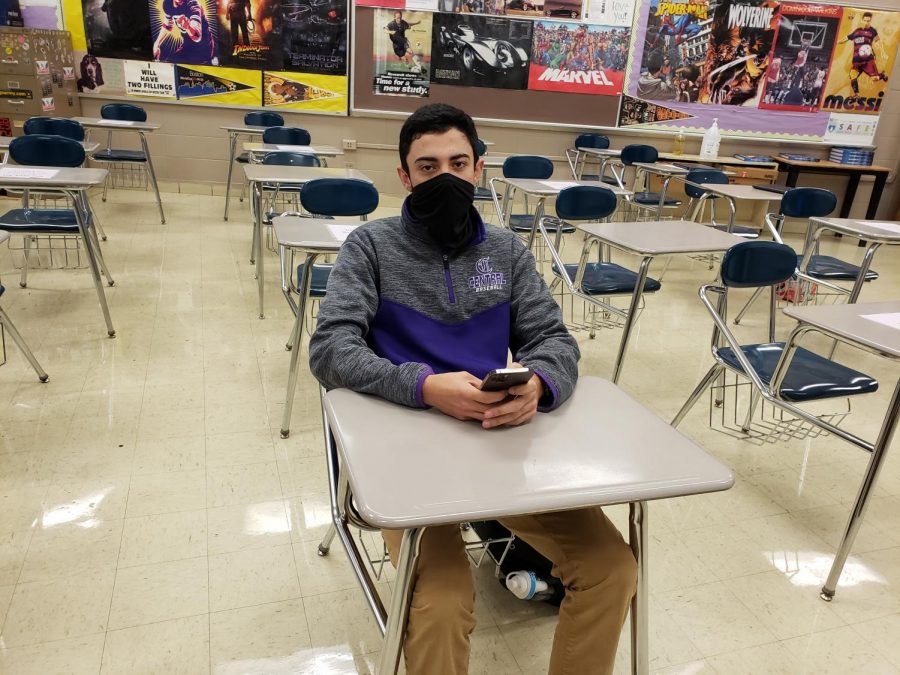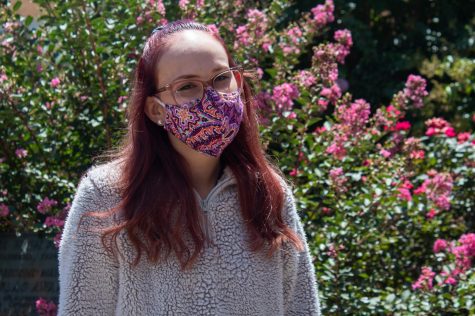Depressed Socially or Socially Depressed?

DEPRESSED SOCIALLY OR SOCIALLY DEPRESSED? — Many students are finding depression in the midst of social media.
March 25, 2021
Social media is prevalent in the life of most teenagers. They make posts about failures, successes, and relationships. It is a place where the pretty get applauded and the smart get congratulated. While social media websites like Facebook, Instagram, Snapchat, and Twitter are all used as venting broadcasts, the sites send deeper messages.
Each year it seems more and more teenagers are diagnosed with depression than in the previous year. Many things can lead to this, but there could be something missing. What if constantly seeing people succeed gave the youth a feeling that they will fail? Constantly seeing people who are built to be “Barbie Perfect” created a feeling of unworthiness that can be overwhelming. Social media has come into our society like a wrecking ball. The question is, do we run to broadcasting sites to escape depression, or does the use of social media create a newfound sense of depression?
“It is easier to fit in with the rest of people if you use social media or know the latest trends online. Social media has impacted my views on myself and the way I look. I feel like I have to make myself look the way that people consider ‘pretty’ on the computer. Otherwise, I think I’m not attractive or meaningful to people. It has affected my worldview by making me believe that most people are successful easily and don’t have to work hard towards their goals. It makes me believe that everyone is either more successful or is pretending to be. I think social media further promotes depression because if you look at past generations, they didn’t feel the way our generation does. And a good part seems to be that everyone sees something on social media and thinks they have to fit themselves into that box,” shared Senior Destiny Green.
Putting yourself into the “one size fits all category” is very detrimental to people who already have bad mental health. Websites like Facebook and Instagram give all teenagers a false perspective of what adulthood is really like. If you look at what is posted versus what is more constant, the two are conflicted greatly. When asked to take time away from toxic internet usage, most adolescents will have a breakdown. In a study done in Buffalo, New York, very few students actually tried to detach from social media. It is an addiction and most people are trapped into its strong gravitational pull.
“I’d say the only reasons I feel obligated to use social media are because I’ve made so many close friends that make me happy. It has helped with my confidence and how social I am. I’ve realized that the more I talk to people, the more social I get. Also, with the few photos I post of myself, the compliments really help with my self-esteem. The expectations of other people have affected me a bit,” said Freshman Destiny Bronson.
The two grade levels have very different views on social media usage. Perhaps this could be because one has been exposed to the effects longer. Even though Bronson believes the websites are a helpful escape from depression, her own answer still reveals some red flags. She runs to social media to get her confidence boost up. That is great to be able to have a supportive environment. However, bring on the depression when likes go down or comments stop. Relying on these outlets to help boost self emotions is overall dangerous. Social media usage does not create depression, but it is that small piece that makes the roller coaster flying down the hill.
“Social media does not cause depression, but it definitely does not help it. The self-beliefs and the expectations influence our lives,” addressed Scott Phillips, government and economics teacher.
If the teenagers of today’s society could detach from harmful websites that create reliance, depression rates may slim down by a small margin. Once in everyone’s life, a season of extreme distraught occurs. As technology has had a new serge, the rates have fluctuated into larger time spans. What we feed our brains matters. Periods of depression are inevitable, but learning a coping mechanism that does not involve co-dependence is a key fighting tactic.
If you are feeling overwhelmed by life and social media outlets, detach from the “perfect” world. Maybe then we can really crack the code to decide if adolescents are socially depressed or depressed socially




